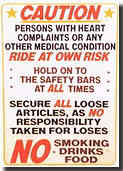Wednesday, January 20, 2010
I'm probably a typical American in my unwonkiness. I read much & read widely, watch the news & late night talk show monologues. But basically I click on headlines from Associated Press & a few online newspapers, read the page, & go to something else. I form opinions less on the "facts" than on what others say or write about the "facts." There, of course, I have my preferences.
Matt Bai's piece in the today's NYT, The Great Unalignment, is much my view also.
I'm a liberal. More left than liberal in some ways. But I'm not especially ideological. Political ideology is something I believe ought to be kept close, a kind of pure standard. Ideologues in public office scare me. Ideologues always believe it's an ideology that wins an election, not a candidate. But good candidates often enough overcome prevailing views & sentiments to win elections. Brown had to do that In MA. I didn't see the election of Obama as deeply ideological. It was a coalition victory wrapped in liberal populism. Liberal populism is a still a strong sell in most states Obama carried, too bad Coakley wasn't carrying the brand. Obama seemed the obvious pragmatic liberal's choice in 2008. He probably was the best choice. I wish he was capable of leaning harder on his own party's legislators; he lacked the long experience of a political insider Hillary Clinton might have brought to the job, but that inexperience was his non-ideological appeal to me & to millions of others. So far, he disappointed me more on economic & banking issues than on health care, because I think he entered office with a real mandate to clean up Wall Street, not just punish a bunch of individuals who got rich legitimately no matter how much we dislike their methods or greed. Wealthy commuters with new mansions in Colts Neck NJ don't disturb me. Boarded up houses do.
On health care reform, the door had yet to be opened, & the bottom line was to get Americans accustomed to the idea that every citizen ought to have affordable public or private HMO coverage regardless of job or income, & that it would cost a lot of money upfront no way around it. But you couldn't just create a pharmaceutical company windfall, like W's "Medicare D" where there's complexities, baffling inducements for various plans, but nothing to make drug companies compete with each other to lower prices & contain costs. So Americans spend money subsidizing the national health plans of other nations, which then use these plans to entice business development. Western Europe sells an educated workforce & long term ideas while America still pushes nonunion labor & a one week vacation to start.
But how can a nation plan when the populace, driven here & there by a 24 hour news cycle, is unwilling to commit to any particular course of action other than to object to whatever is being done now? A political party has to stand or fall on some kind of basic ideology.
"If a nation expects to be ignorant and free, in a state of civilization, it expects what never was and never will be." Thomas Jefferson
Matt Bai's piece in the today's NYT, The Great Unalignment, is much my view also.
I'm a liberal. More left than liberal in some ways. But I'm not especially ideological. Political ideology is something I believe ought to be kept close, a kind of pure standard. Ideologues in public office scare me. Ideologues always believe it's an ideology that wins an election, not a candidate. But good candidates often enough overcome prevailing views & sentiments to win elections. Brown had to do that In MA. I didn't see the election of Obama as deeply ideological. It was a coalition victory wrapped in liberal populism. Liberal populism is a still a strong sell in most states Obama carried, too bad Coakley wasn't carrying the brand. Obama seemed the obvious pragmatic liberal's choice in 2008. He probably was the best choice. I wish he was capable of leaning harder on his own party's legislators; he lacked the long experience of a political insider Hillary Clinton might have brought to the job, but that inexperience was his non-ideological appeal to me & to millions of others. So far, he disappointed me more on economic & banking issues than on health care, because I think he entered office with a real mandate to clean up Wall Street, not just punish a bunch of individuals who got rich legitimately no matter how much we dislike their methods or greed. Wealthy commuters with new mansions in Colts Neck NJ don't disturb me. Boarded up houses do.
On health care reform, the door had yet to be opened, & the bottom line was to get Americans accustomed to the idea that every citizen ought to have affordable public or private HMO coverage regardless of job or income, & that it would cost a lot of money upfront no way around it. But you couldn't just create a pharmaceutical company windfall, like W's "Medicare D" where there's complexities, baffling inducements for various plans, but nothing to make drug companies compete with each other to lower prices & contain costs. So Americans spend money subsidizing the national health plans of other nations, which then use these plans to entice business development. Western Europe sells an educated workforce & long term ideas while America still pushes nonunion labor & a one week vacation to start.
But how can a nation plan when the populace, driven here & there by a 24 hour news cycle, is unwilling to commit to any particular course of action other than to object to whatever is being done now? A political party has to stand or fall on some kind of basic ideology.
Labels: Barack Hussein Obama, in the news














